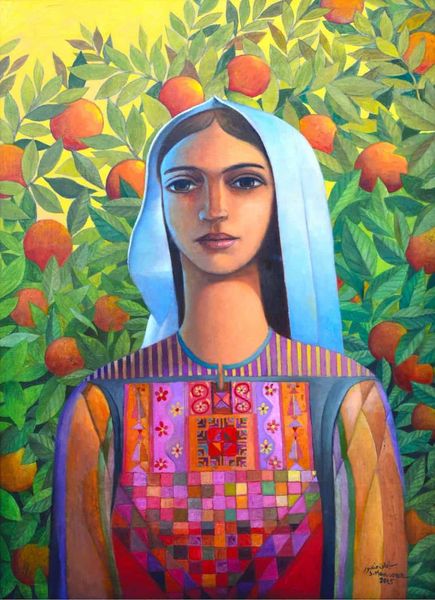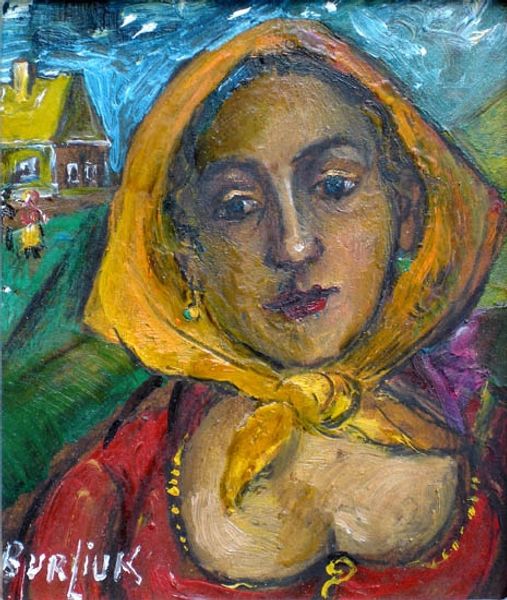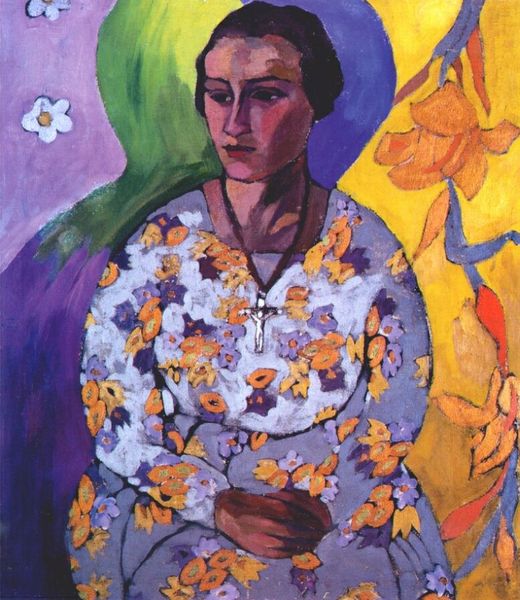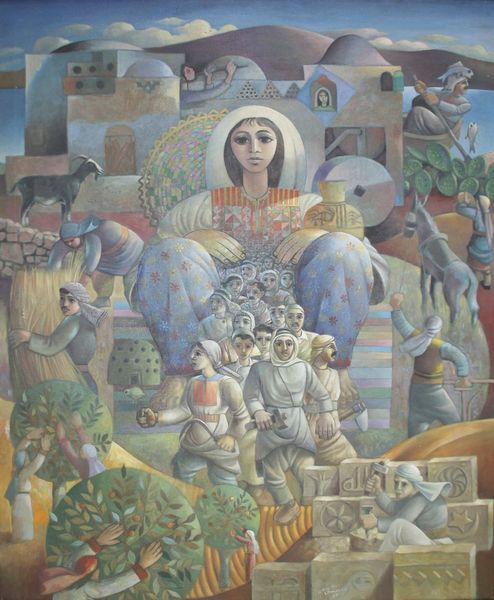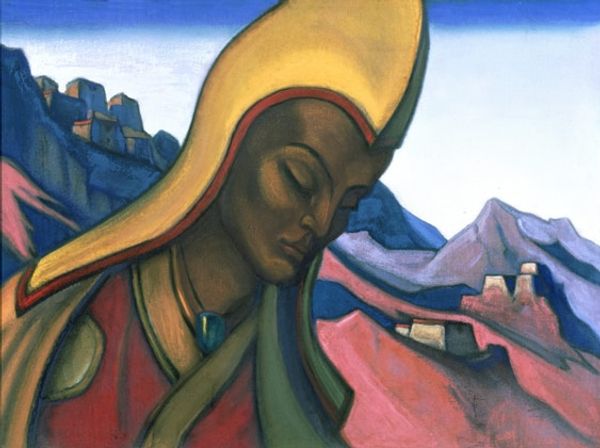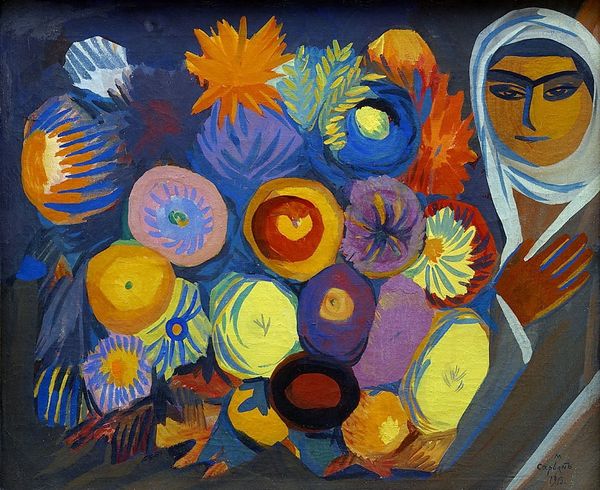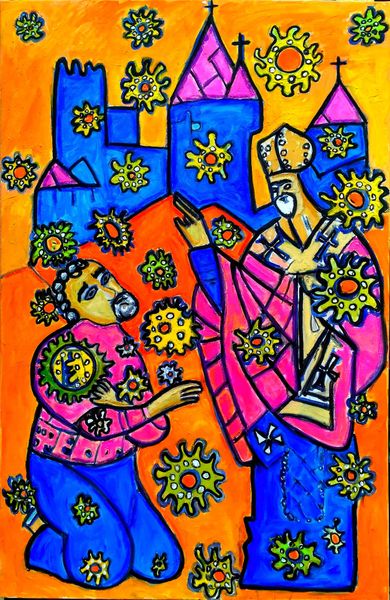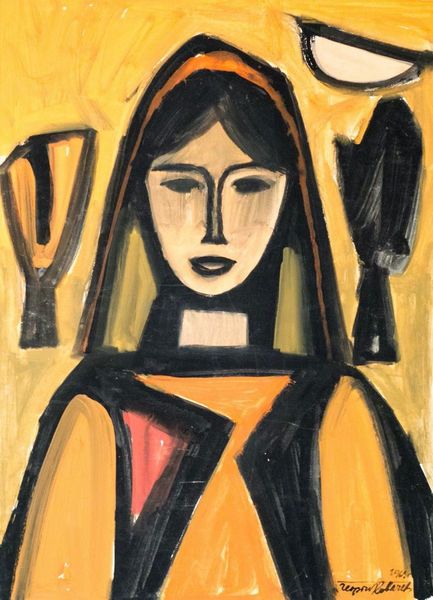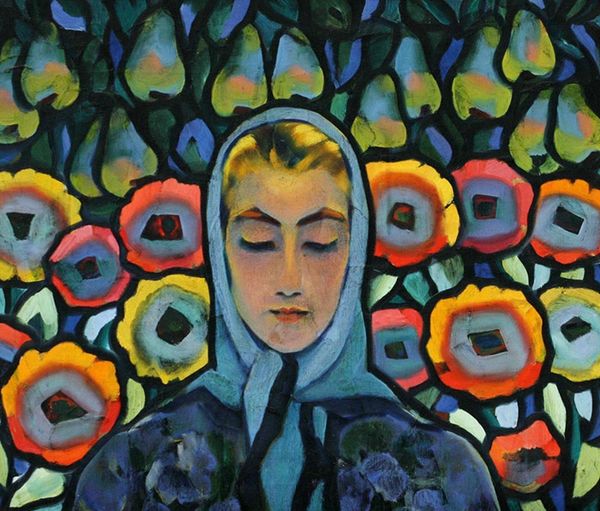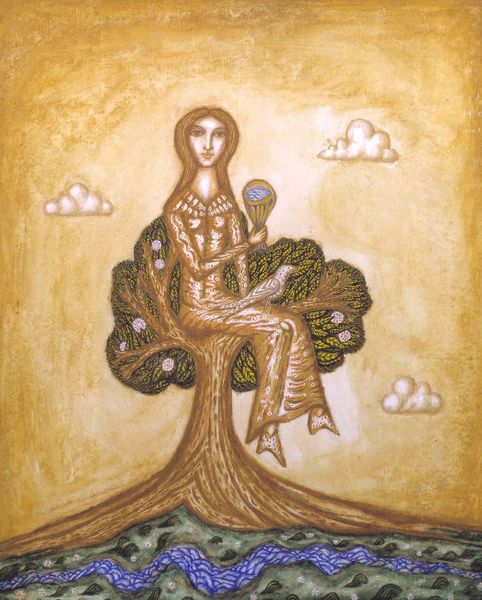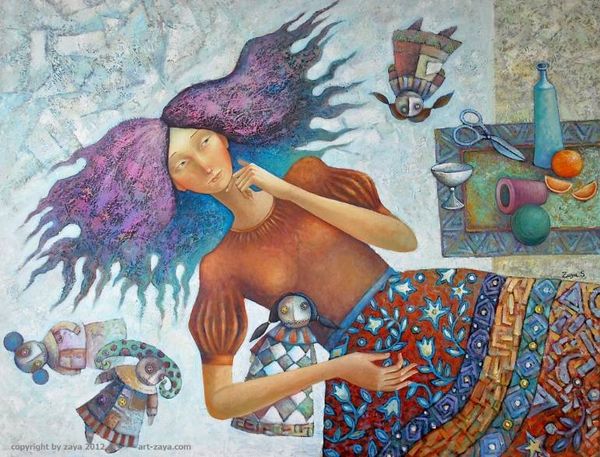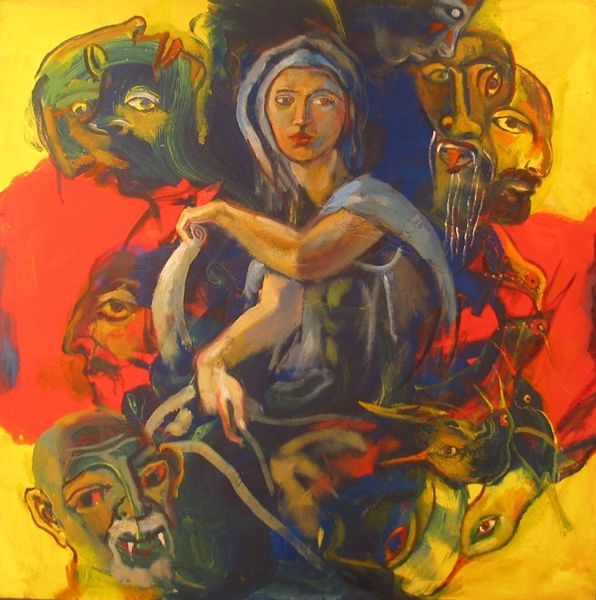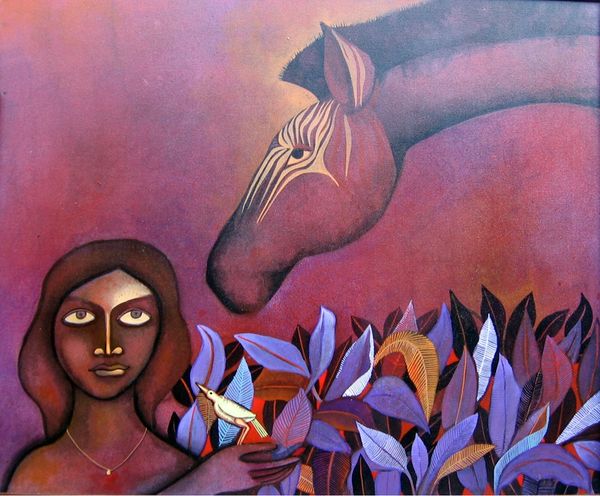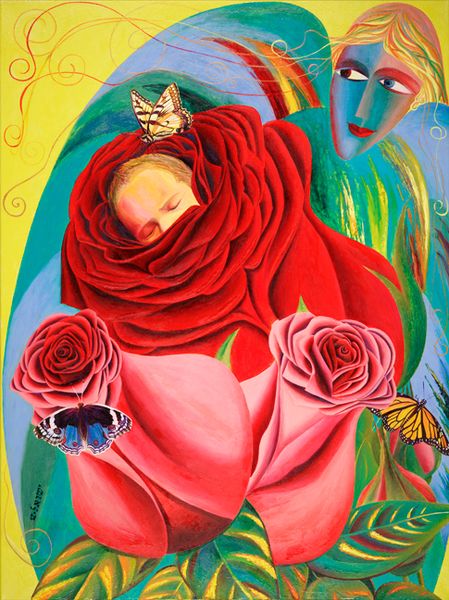
painting, acrylic-paint
#
portrait
#
contemporary
#
narrative-art
#
painting
#
landscape
#
acrylic-paint
#
figuration
#
oil painting
#
acrylic on canvas
#
portrait art
#
modernism
Copyright: Sliman Mansour,Fair Use
Curator: This is Sliman Mansour's "Woman Picking Olives," created in 2018. Mansour employs acrylic paint to portray a modern exploration of a timeless scene. Editor: It strikes me as a very gentle and tender image, with the muted tones and the woman's careful gesture. There's a serenity, despite what I imagine is backbreaking labor. Curator: Precisely. The composition cleverly uses the branches of the olive tree to frame the woman's face, leading the eye directly to her gaze, which carries such dignity and resolve. I’m intrigued by how Mansour employs modernist visual vocabulary in this painting; one finds planar forms articulated through color relationships, allowing for a flatness of affect. Editor: The intricate embroidery on her dress, rendered with such attention to detail, also suggests so much about the socio-cultural importance of the motif within Palestinian visual and material culture. Olive trees and olive harvests are symbols of the steadfast resilience of the Palestinian people in the face of immense hardship and cultural disruption. This painting is therefore imbued with political meaning. Curator: Indeed. Semiotically, the figure occupies both literal and figurative spaces; note that the woman almost becomes one with the branches, symbolizing her profound connection to the land and her identity as a member of a rural society dependent on its agricultural production. This speaks to something essential about cultural belonging. The visual structure is a form of subtle cultural reinforcement. Editor: Absolutely. It becomes almost an act of cultural preservation, representing rural, often female labor with tremendous respect. Considering this alongside the history of displacement within Palestine, we can see that the act of portraying the olive harvest functions as an endorsement of traditional life amidst ever-changing political and geographical conditions. The image then transforms into a potent declaration of cultural agency. Curator: It truly encapsulates the power of visual language. Mansour’s strategic manipulation of color and form invites viewers to not only observe but to actively decode his underlying commentary on labor, landscape and resistance. Editor: It provides us with insight into the layered relationship between art, society, and historical awareness, making one profoundly appreciative of the symbolism encapsulated in Mansour’s choice of subject matter and setting.
Comments
No comments
Be the first to comment and join the conversation on the ultimate creative platform.
